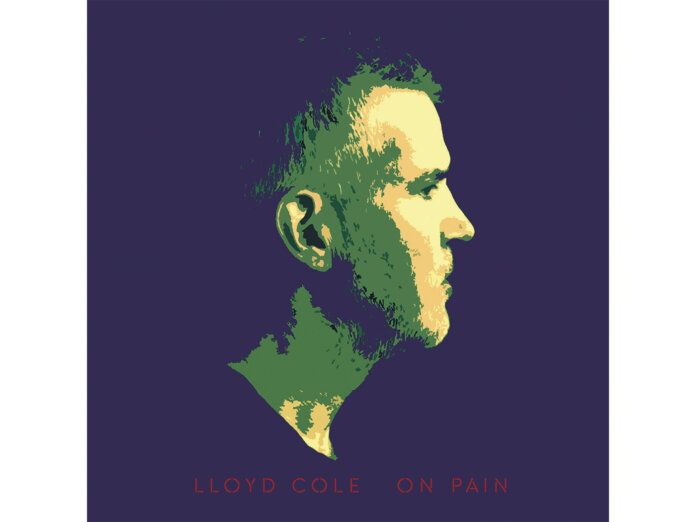In the autumn of 1984, abetted by his Commotions, Lloyd Cole coughed out a masterpiece called Rattlesnakes. In his black polo neck and corduroys, the video to “Perfect Skin” saw Cole looking and sounding like a man willing middle-age gravitas to come and get him. Meanwhile, he fetishised the dreams and disasters of the protagonists in stories by Raymond Chandler and Joan Didion. On Easy Pieces, released a year later, he sang about characters who struggled to come to terms with the bad decisions of their ruthless youth.
All of which is worth dwelling on because, in the intervening years, Lloyd Cole finally got to be the thing he so badly wanted to be from the outset. He got old – and when that happens to songwriters, they get a different sort of pass to the one that allows you to ride buses for free. People project onto you the depth that comes with mere survival. It’s something Cole himself noticed in the last decade. After mid-life creative peaks such as Music In A Foreign Language came and went without much fanfare, 2013’s Standards elicited not so much a Proustian rush as a Mexican wave of déja vû from returning fans who rightly held it up as a sonic postscript to that 1984 debut. As it turned out, Standards was something of a red herring. Now that Cole had our attention, with 2019’s elegant, electronic Guesswork he set about creating music that couldn’t be further removed from his precociously florid early work.
And it turns out that when you’re pulling the weight of all that lived experience through life, the less you feel the need to elaborate. “You can’t believe it/It can’t be possible/But it’s happening now”, runs the entire lyric of “This Can’t Be Happening”, the sixth of the eight songs that comprise On Pain. Just those three lines over and over, occasionally accompanied by an impersonally unhuman female harmony, while tentative synth stabs search out a rhythm on which they might be able to ride out of this torment.
At moments like this, the space left by Cole turns the listener into collaborator. The shock of loss; the halogen glare of waiting rooms where people gather to hear the worst; a letter bearing unwelcome news. These are the scenes somehow implied here – and you can’t help but fill them in. On “You Are Here Now”, Cole begins like a man transmitting from a numbness that sits beyond emotion – “Every day the same as every day before” – before a slo-mo digital stampede vaults him into an apparent reconnection with the miracle of his existence. In these moments lies the validation of Cole’s assertion that the only thing about the record that he wanted to sound organic were the sentiments that brought the songs to life.
To which end, it’s an Auto-Tuned iteration of the careworn Cole timbre that takes centre-stage on “I Can Hear Everything”, the singer inhabiting the guise of a mildly exasperated God. It’s not the only song here rooted in a feeling of fin de siecle fatalism. “Warm By The Fire” sounds like a companion piece to Cass Elliott’s “California Earthquake”, which Cole covered on Standards – only this time, the disaster is man-made, hence Cole navigating his lyrical drone over the shopping malls of an Los Angeles being set alight by insurrectionary influencers. It’s good, but this rocky outlier doesn’t entirely sound like it belongs among the sparsely ornamented electronic meditations that surround it.
Much better are the songs that bookend the album: revealed in a sultry fug of nocturnal humidity, “Wolves” offers a dreamlike reversal of the werewolf trope, while the album’s exquisite title track finds Cole’s consolation patter mirroring the music’s cocooned queasiness. On a subdued celebration of Iggy Pop and David Bowie’s mythical German sabbatical, “The Idiots”, Cole sings, “We’ll move to Berlin/Stop being drug addicts/We’ll cycle and swim”. Cole has frequently hymned the effect the pair’s Berlin albums had on him, singling out that same unflinching minimalism he feels is so well-suited to writing from an older perspective.
Perhaps the most perfectly realised authentication of that claim comes with the penultimate song. Incredibly, seeds of “More Of What You Are” were sown in the same overheard conversation that spawned the Commotions’ “My Bag”, the observation that cocaine’s primary effect is to make you “more of what you are”. Over a balletically mesmerising tapestry of synths that evoke Trans-Europe Express’s quieter interludes, Cole extends that observation to the ageing process: the way the lines on our faces deepen and multiply with time, exaggerating the version of us that exists in the collective memory of our friends. Lloyd Cole is no exception. He, too, has become more of what he always was. And somehow he’s achieved that by paring his music down to its rawest essence.



